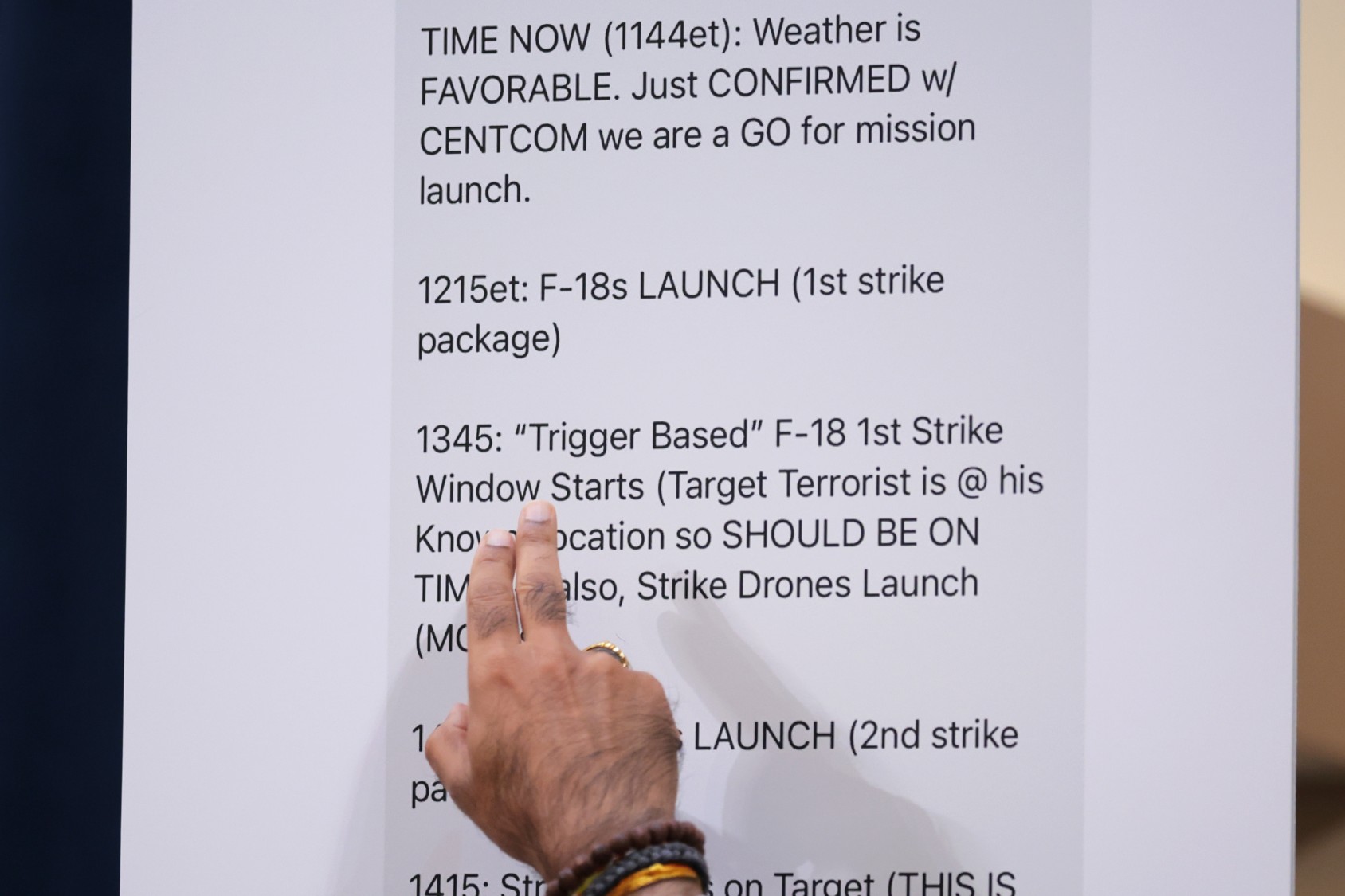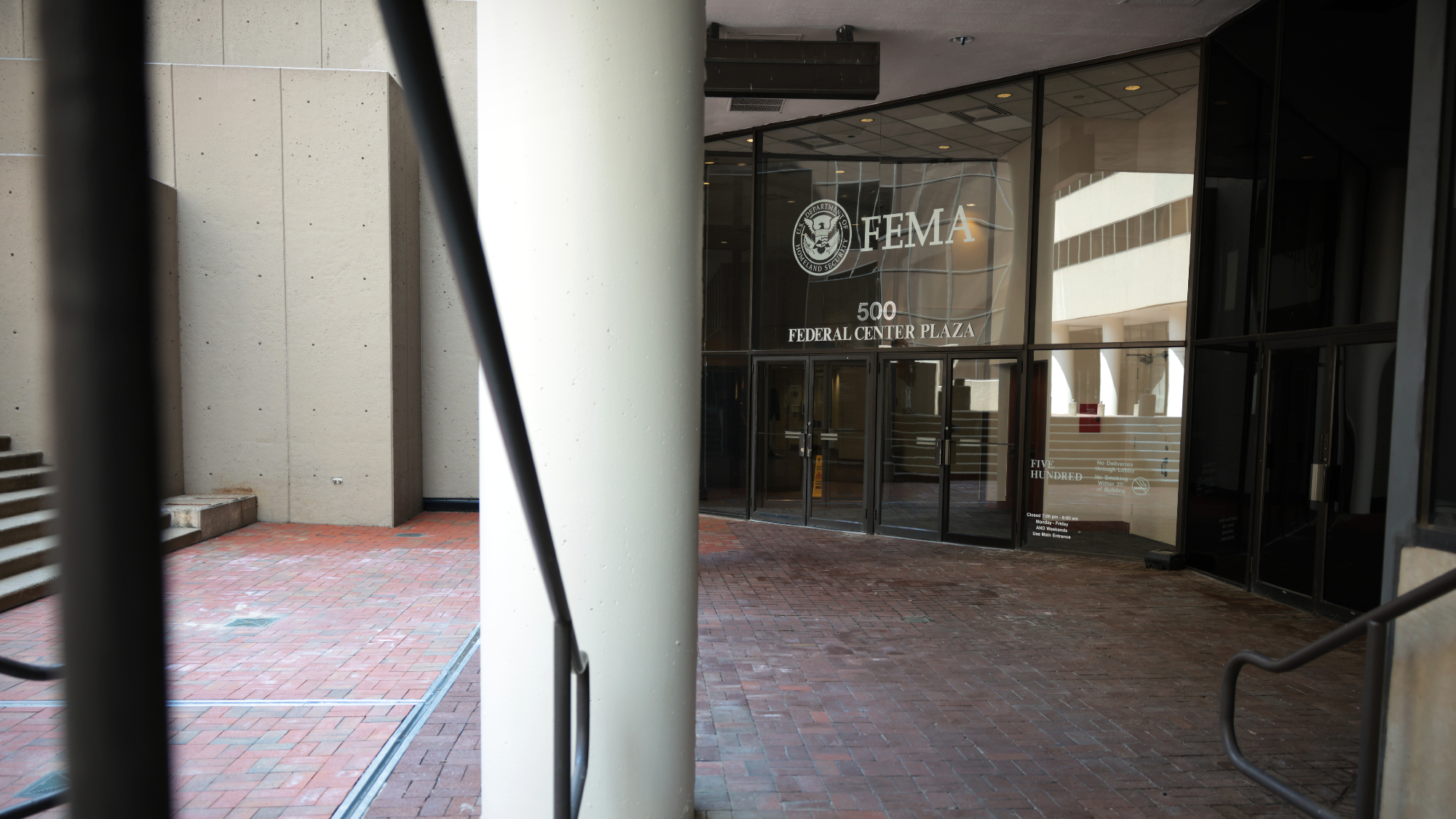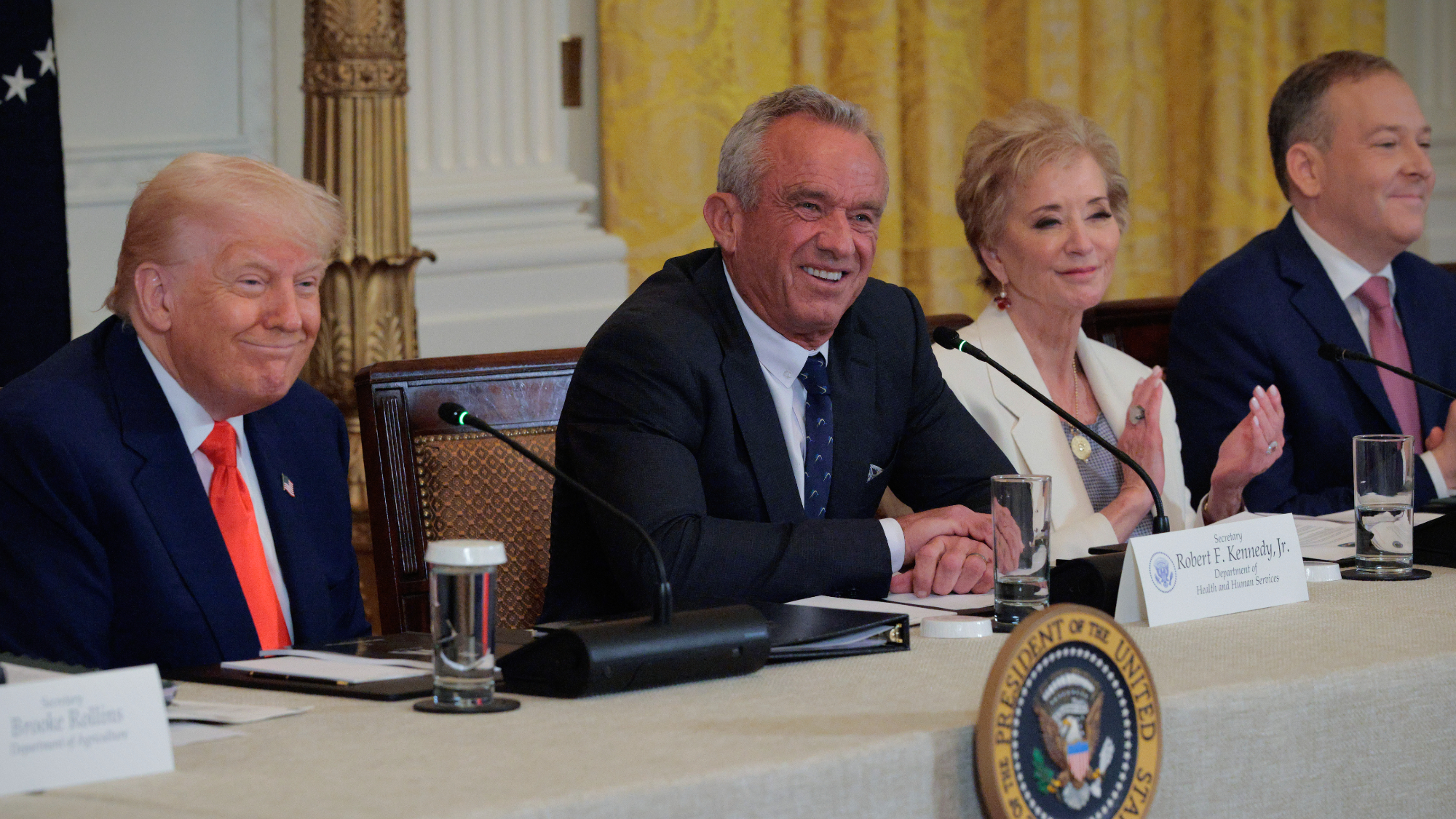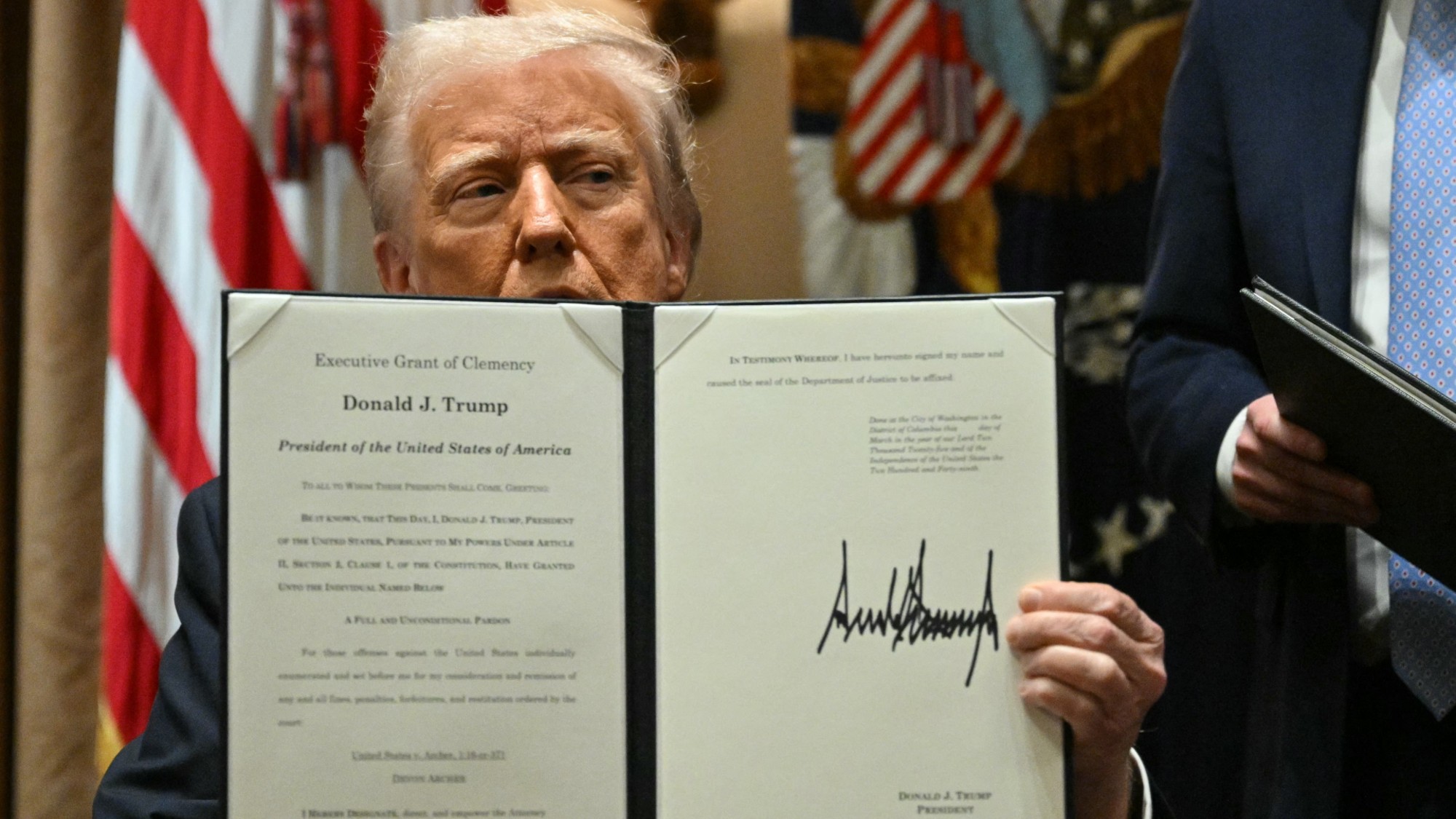Why is the US bombing Yemen in the first place?
The Trump administration's snowballing 'Signalgate' scandal has helped refocus public attention onto one of the nation's least-understood military entanglements


Washington continues to reel this week after The Atlantic editor Jeffrey Goldberg published a stunning report detailing his experience being accidentally added to a group chat of Trump administration officials. Using the messaging app Signal, they were coordinating a military strike on Houthi targets in Yemen. Goldberg's story, the second half of which was released after the White House insisted there had been no breach of top secret protocols, has become a major scandal for President Donald Trump and members of his Cabinet.
House Minority Leader Hakeem Jeffries (D-N.Y.) on Tuesday demanded in a letter to the White House that Secretary of Defense Pete Hegseth be "fired immediately" for the breach, while Sen. Amy Klobuchar (D-Minn.) raised the possibility of a congressional investigation into the episode. While the political ramifications of this "Signalgate" scandal remain to be fully seen, the incident has brought public attention to a broader and perhaps more materially pressing question: Why is the United States bombing Yemen at all?
Clearing global shipping lanes
The White House has said that strikes against the Houthi group, which have played a key role in Yemen's ongoing civil war, are "due to attacks on Navy ships and shipping" in the Red Sea by the Iran-backed Islamist group, said Military.com. The bombardment will end the "minute the Houthis say 'we'll stop shooting at your ships, we'll stop shooting at your drones,'" said Defense Secretary Pete Hegseth last week to Fox News host Maria Bartiromo before The Atlantic's story was published. The campaign is about "freedom of navigation" and "restoring deterrence," Hegseth said.
Subscribe to The Week
Escape your echo chamber. Get the facts behind the news, plus analysis from multiple perspectives.

Sign up for The Week's Free Newsletters
From our morning news briefing to a weekly Good News Newsletter, get the best of The Week delivered directly to your inbox.
From our morning news briefing to a weekly Good News Newsletter, get the best of The Week delivered directly to your inbox.
The Houthis had "pledged to restart their attacks on Israeli-linked vessels" in the wake of Israel's renewed bombardment of Gaza this month, said Responsible Statecraft. The group's previous attacks, which intensified during the conflict between Israel and Hamas last year, led to "economic disruption," with predominantly European-based commerce being "rerouted away from the region." During those assaults, the group used a "loose definition of what constitutes an Israeli ship, meaning other vessels could be targeted as well," said The Associated Press.
Saber-rattling in Iran's direction
The U.S. attacks are also "meant to send a warning signal to Iran," with whom the president wants to "broker a deal" over nuclear weaponry, said The New York Times. Vice President J.D. Vance seemed, at least in part, to acknowledge this facet of the administration's strategy in the Signal conversation detailed by Goldberg. Given that the majority of the disrupted trade in the region was European, the "strongest reason to do this is, as POTUS said, to send a message," Vance said on Signal.
Iranian backing of the Houthis is "central" to the group's operational capacity, said Andrew Borene, a member of the Atlantic Council's Counterterrorism Project, in a council analysis. With the Houthis having "positioned themselves within Iran's 'Axis of Resistance,'" the U.S. needs a "more comprehensive allied approach" as "airstrikes alone won't be enough to push the Houthis out of Yemen or restore stability to one of the world's most vital trade routes."
Sign up for Today's Best Articles in your inbox
A free daily email with the biggest news stories of the day – and the best features from TheWeek.com
Rafi Schwartz has worked as a politics writer at The Week since 2022, where he covers elections, Congress and the White House. He was previously a contributing writer with Mic focusing largely on politics, a senior writer with Splinter News, a staff writer for Fusion's news lab, and the managing editor of Heeb Magazine, a Jewish life and culture publication. Rafi's work has appeared in Rolling Stone, GOOD and The Forward, among others.
-
 June 7 editorial cartoons
June 7 editorial cartoonsCartoons Saturday's political cartoons include reminders that we are all going to die, and Elon Musk taking a chainsaw to the 'Big, Beautiful, Bill'
-
 5 naturally disastrous editorial cartoons about FEMA
5 naturally disastrous editorial cartoons about FEMACartoons Political cartoonists take on FEMA, the hurricane season, and the This is Fine meme
-
 Amanda Feilding: the serious legacy of the 'Crackpot Countess'
Amanda Feilding: the serious legacy of the 'Crackpot Countess'In the Spotlight Nicknamed 'Lady Mindbender', eccentric aristocrat was a pioneer in the field of psychedelic research
-
 'Constantly shifting regulations are a nightmare'
'Constantly shifting regulations are a nightmare'Instant Opinion Opinion, comment and editorials of the day
-
 Obamacare is under threat in Trump's tax bill
Obamacare is under threat in Trump's tax billIn the Spotlight Medicaid has been the main talking point, but Obamacare users could be at risk
-
 Trump may team with a tech company to create a database of Americans
Trump may team with a tech company to create a database of AmericansIn the Spotlight A recent report indicated that Trump is partnering with the tech company Palantir
-
 Trump's budget bill will increase the deficit. Does it matter?
Trump's budget bill will increase the deficit. Does it matter?Today's Big Question Analysts worry a 'tipping point' is coming
-
 Depleted FEMA struggling as hurricane season begins
Depleted FEMA struggling as hurricane season beginsspeed read FEMA has lost a third of its workforce amid DOGE cuts enforced by President Donald Trump
-
 White House tackles fake citations in MAHA report
White House tackles fake citations in MAHA reportspeed read A federal government public health report spearheaded by Robert F. Kennedy Jr. was rife with false citations
-
 Judge blocks push to bar Harvard foreign students
Judge blocks push to bar Harvard foreign studentsspeed read Judge Allison Burroughs sided with Harvard against the Trump administration's attempt to block the admittance of international students
-
 Trump's super-charged pardon push raises eyebrows and concerns
Trump's super-charged pardon push raises eyebrows and concernsIN THE SPOTLIGHT Never shy about using his pardon ability for political leverage, Trump's spate of amnesty announcements suggests the White House is taking things to a new level